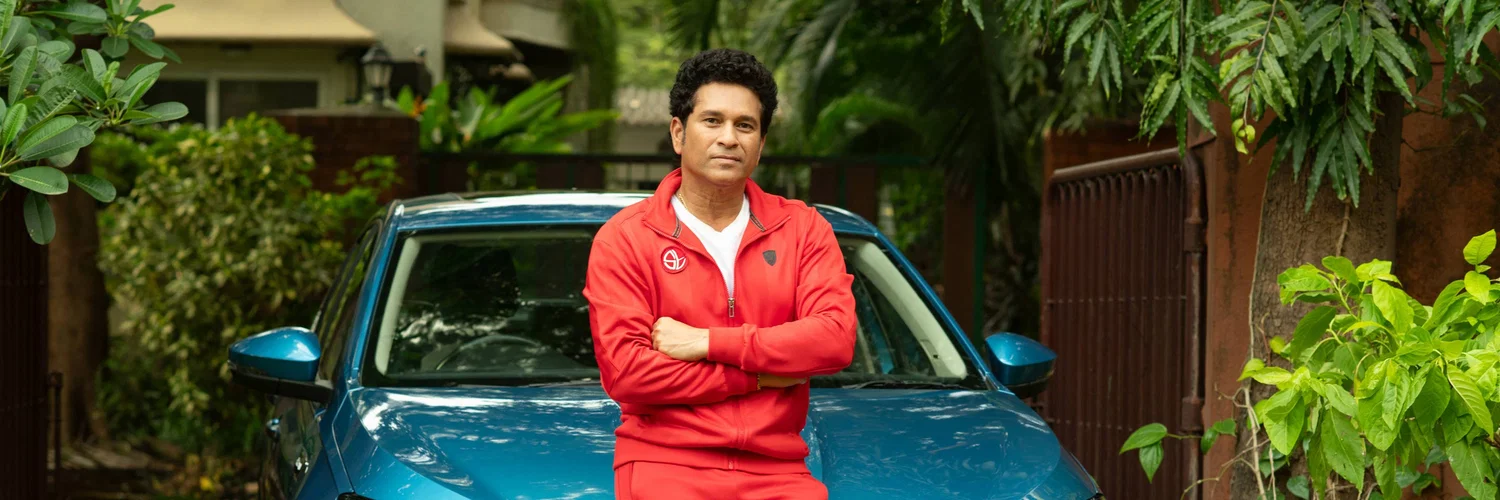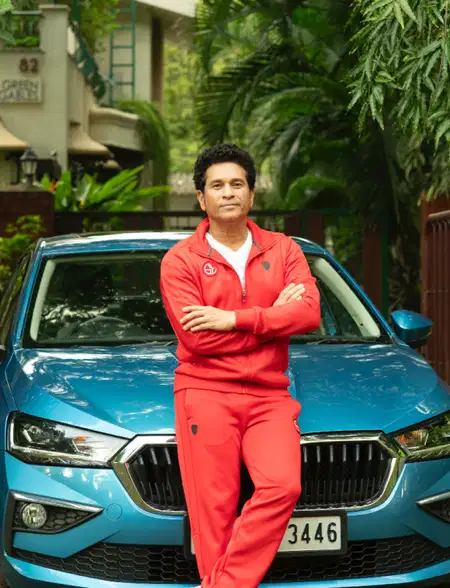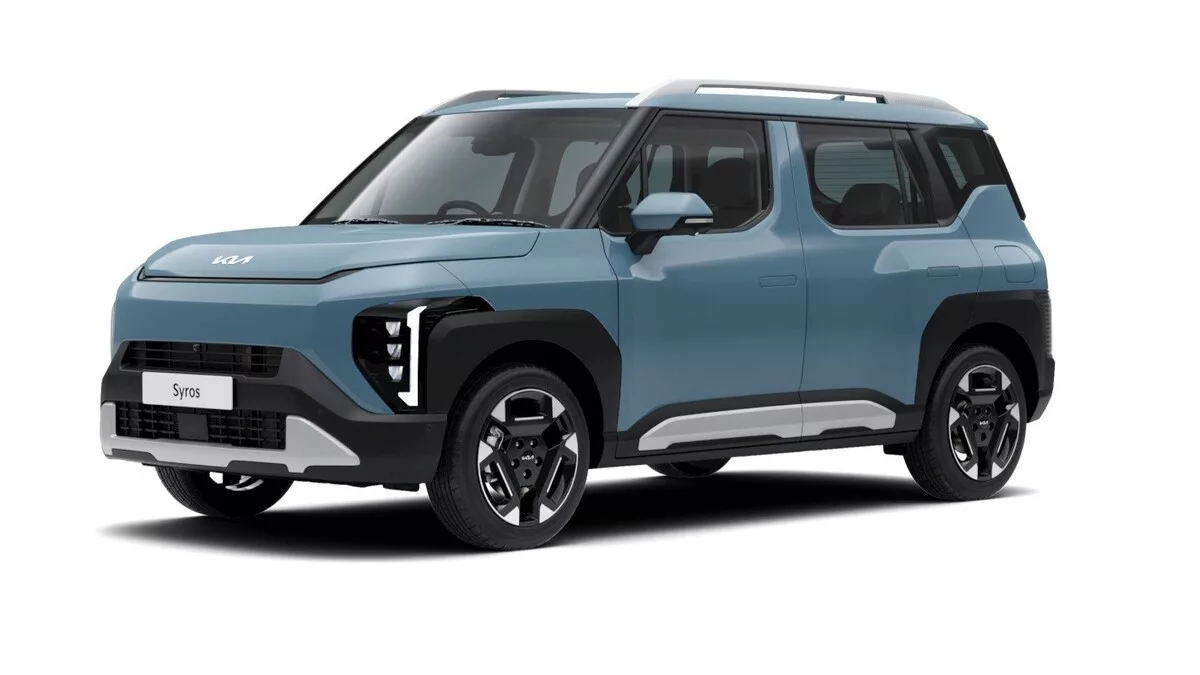How often do we go to the market to purchase something and end up buying something else? This usually happens when we are offered a more appealing deal in the price bracket we fixed for our purchase. Such is the case between the Tata Harrier and the Hyundai Alcazar. While the Harrier is a 5-seater and the Hyundai Alcazar is a 6- & 7-seater, a buyer making up his mind about the Alcazar can easily end up buying the Harrier or vice versa. But, why is it so?
There are many factors about both these SUVs that make them capable rivals of each other. If you are looking for a big SUV in the ballpark of Rs 20 lakh, it will be wise to consider and weigh the Harrier against the Alcazar. In this comparison of the Tata Harrier vs Hyundai Alcazar, we compare both cars on decisive grounds and find out which of the two is more suited to your requirements.
Tata Harrier vs Hyundai Alcazar: Dimensions

Tata Harrier | Hyundai Alcazar | |
Length | 4,605 mm | 4,500 mm |
Width | 1,922 mm | 1,790 mm |
Height | 1,718 mm | 1,675 mm |
Wheelbase | 2,741 mm | 2,760 mm |
Ground Clearance | 205 mm | 200 mm |
Boot Space | 445 litres | 180 litres 579 liters (with 3rd row folded) |
Big SUVs like the Harrier and Alcazar are meant to deliver comfort for the family, which is not possible if the car does not pack enough space. To speak of Harrier, it is as wide as the 6-& 7-seater Tata Safari and has a similar wheelbase, therefore this Indian 5-seater SUV has always been renowned for the loads of space it offers for 5 passengers. To give you a better perspective, the Tata Harrier is significantly wider than its direct 5-seater rivals like MG Hector, Mahindra XUV700, and Jeep Compass, and recognized as the most spacious 5-seater in its segment. Moreover, its 445 litres of boot space in the real world feels more spacious and is a substantial luggage-carrying capacity.
On the other hand, the Hyundai Alcazar is a 6- & 7-seater which means seats available for 6- & 7 passengers. This may sound like stating the obvious, but still is a fact worth remembering. As we look at the dimensions, the Alcazar is 132 mm narrower and 43 mm lower than the Harrier. This makes its middle row not as spacious as the rear seat of the Harrier. However, if you go for the 6-seater version that offers two captain seats in the middle row, space is not going to be a problem for the middle-row passengers. The third row of the Alcazar which consists of two seats is not sufficiently spacious for adults and is best-suited for children or young teenagers.

As far as looks are concerned, while it is subjective, the Tata Harrier has always been famous as one of the most beautiful cars in India. And after the facelift it has become even more striking especially due to the larger grille featuring metal-like embellishments, sleek DRLs connected by a light bar, and a full-width light bar at the rear. Meanwhile, the Hyundai Alcazar looks like an elongated Hyundai Creta with an aggressive front fascia and muscular silhouette.
The Tata Harrier is by far the most spacious 5-seater car under Rs 30 lakh and a better-looking car than the Alcazar. However, if you need a 6- & 7-seater SUV, the Alcazar is a clear choice in this comparison, mind you the passengers in the third row will find themselves cramped for room if they are not children or young teenagers.
Tata Harrier vs Hyundai Alcazar: Engine & Transmission
Tata Harrier | Hyundai Alcazar | |
Engine | 2-litre turbo diesel engine | 1.5 litre turbo petrol engine 1.5 litre turbo diesel engine |
Power | 170 PS | 160 PS 116 PS |
Torque | 350 Nm | 253 Nm 250 Nm |
Transmission | 6-speed manual gearbox & 6-speed torque converter automatic | · 6-speed manual & 7-speed DCT automatic (turbo petrol engine) · 6-speed manual & 6-speed torque converter automatic (turbo diesel engine) |
Mileage | 14.60 – 16.80 km/l | 18.8 km/l (petrol) 24.5 km/l (diesel) |
On the mechanical front, both Harrier and Alcazar have their advantages and disadvantages. The availability of a petrol engine which the Harrier misses and the ability to deliver a better diesel mileage give the Alcazar a huge edge over the Harrier. Moreover, both its engines are very refined and deliver a smooth drive expected of Hyundai cars. While the 1.5-litre diesel engine of the Alcazar can seem underpowered for a car of its size, the Korean SUV is relatively lighter with a kerb weight of 1,535 kg, offering an adequate power-to-weight ratio. However, with all 7 passengers onboard, the Alcazar’s engine feels to be wanting more power despite the turbo boost.
On the other hand, the Tata Harrier is a heavy SUV with a kerb weight of 1,650 kg. Its 2-litre turbo diesel engine which it shares with Jeep Compass and MG Hector, is significantly more powerful than that of the Alcazar and delivers a zesty drive complemented with ample torque of 350 Nm. All the same, the engine is a tad noisier as compared to the turbo diesel engine of the Alcazar.
If you want a petrol-powered SUV, then the Alcazar is the only option among these two SUVs. Meanwhile, for a diesel-powered SUV, the Harrier is a better option for an exciting drive, while the Alcazar is a better pick for more refinement and higher mileage.
Tata Harrier vs Hyundai Alcazar: Features & Comfort

Tata Harrier | Hyundai Alcazar | |
Infotainment system | 12.3-inch touchscreen infotainment system | 10.25-inch touchscreen infotainment system |
Music system | 10-speaker JBL sound system | 7-speaker Bose sound system |
Climate control | Dual-zone automatic | Automatic |
Ventilated seats | Front ventilated seats | Front ventilated seats |
Adjustable steering | Tilt & telescopic adjust | Tilt & telescopic adjust |
Drive modes | Drive modes: Eco, City, Sports Terrain modes: Normal, Wet, Rough | Drive modes: Comfort, Eco, Sport Terrain modes: Sand, Mud, Snow |
Instrument cluster | 10.25-inch digital instrument cluster | 10.25-inch digital instrument cluster |
Sunroof | Panoramic sunroof | Panoramic sunroof |
Adjustable seats (manual or electric) | 6-way power driver seat & 4-way powered front passenger seat | 8-way powered driver seat |
Rear AC vents | Available | Available |
60:40 rear seat split | Available | 50:50 split |
Cruise control | Available | Available |
While both SUVs do justice to their prices in terms of the premium feel of the cabin, being recently facelifted the Tata Harrier is the more modern car of the two. This is primarily due to the free-standing touchscreen infotainment system, the gloss black panel on the dashboard with the illuminated Tata logo, and the gloss black layer of the dashboard that houses the controls for dual-zone climate control. These controls remain hidden from view when the car is off and only show up when the car is on, adding to the overall modernity of the cabin.
Meanwhile, the Alcazar shares a lot of interiors with the Hyundai Creta, especially the basic layered design of the dashboard that houses the same touchscreen infotainment system. This is not to say it does not feel premium, as the tan finish on the dashboard and seats does make it feel a segment above its younger sibling.

Features are something that has been the forte of Hyundai for a long time. Despite being due a facelift since its launch in 2021, the Alcazar is almost neck to neck with the recently facelifted Harrier in terms of features. Both SUVs are laden with upmarket features like a premium sound system, front-ventilated seats, and the coveted panoramic sunroof. All the same, while the Alcazar has the advantage of a second wireless charger for the middle row in 6-seater versions and a dash cam with dual camera which is a rare feature in the passenger vehicle market, the Harrier scores a couple of more points due to the 4-way powered front passenger seat and dual-zone climate control.
Overall, both Alcazar and Harrier feel significantly premium on the inside and are well-laden with premium features.
Tata Harrier vs Hyundai Alcazar: Safety Features
Tata Harrier | Hyundai Alcazar | |
G-NCAP Safety Rating | 5-star | Not tested |
Airbags | Up to Seven (Six standard) | Six |
ABS with EBD | Yes | Yes |
ESC | Yes | Yes |
Traction Control | Yes | Yes |
Automatic headlamps | Yes | Yes |
Rain-sensing Wipers | Yes | Yes |
Hill hold assist | Yes | Yes |
Hill descent control | Yes | No |
Rear sensors | Yes | Yes |
Rear parking camera | 360-degree camera | 360-degree camera |
ISOFIX Child seat anchor points | Yes | Yes |
ADAS | Level-2 ADAS features | No |
While both SUVs sport all the essential safety features it is hard to beat Tata when it comes to the safety quotient. With the new Tata Harrier, the Indian carmaker has upped the game by a big margin. The Tata Harrier has scored a full 5 stars in the Global NCAP safety test, exhibiting its structural strength, and becoming one of the safest cars in India. Moreover, with Level-2 ADAS safety features onboard, the Indian SUV can ward off accidents far better than the Alcazar.
Clearly, the Tata Harrier is far ahead of the Alcazar on the grounds of passenger safety.
Tata Harrier vs Hyundai Alcazar: Price comparison
Tata Harrier | Hyundai Alcazar | |
Base variants (Ex-Showroom) | Rs 15.49 – 15.99 lakh | Rs 16.77 – 19.20 |
Mid variants (Ex-Showroom) | Rs 16.99 – 21.39 lakh | Rs 18.68 – 20.76 lakh |
Upper mid variants (Ex-Showroom) | Rs 20.19 – 24.09 lakh | Rs 20.13 – 20.28 lakh |
Top variant | Rs 22.99 – 26.44 lakh | Rs 20.28 – Rs 21.23 lakh |
This is where things can get confusing for buyers. The base and mid variants of both SUVs are almost similarly priced, however, the upper-mid variants and top variants of the Harrier are considerably more expensive than those of the Alcazar. At nearly Rs 21 lakh (ex-showroom), the Alcazar offers you its full-loaded variant while the Harrier offers some important features like a powered driver seat, powered front passenger seat, front seat ventilation, auto-dimming IRVM, and dual-zone climate control Rs 22 lakh (ex-showroom) onwards. However, if you desire the panoramic sunroof, both SUVs offer it for nearly Rs 20 lakh (ex-showroom).
Tata Harrier vs Hyundai Alcazar: Summary
Now, the question is which one should you buy?
The Tata Harrier is a peach of a car if you want a spacious, safe, and good-looking SUV that can ferry 5 passengers in illustrious comfort and is also exciting to drive. Moreover, the Indian SUV sports more than enough features to entertain you and deliver a commendable convenient ride experience. All the same, its top variants can seem pricier in this comparison, but they are worth it considering its safety levels; passenger safety is of paramount importance and invaluable in more than one way.
However, if you are hell-bent on buying a 6- or 7-seater SUV or a petrol-powered SUV, the Alcazar should be the pick among these two SUVs. Mind you, the two seats in the third row are known for the lack of room and are best suited for children and young teenagers. As far as features are considered, being a Hyundai car, the Alcazar has necessary equipment to deliver a convenient and entertaining passenger experience.
Tata Harrier vs Hyundai Alcazar: FAQs
Q. Among the Tata Harrier and Hyundai Alcazar, which one is bigger?
The Tata Harrier is 4,605 mm long, 1,922 mm wide, 1,718 mm tall, and has a wheelbase of 2,741 mm. The Hyundai Alcazar is 4,500 mm long, 1,790 mm wide, 1,675 mm tall, and has a wheelbase of 2,760 mm. Therefore, the Harrier is 105 mm longer, 132 mm wider, and 43 mm taller, as compared to the Alcazar, while the Alcazar has a 19 mm longer wheelbase than that of the Harrier.
Q. Among the Tata Harrier and the Hyundai Alcazar, which one is more powerful?
The 2-litre turbo diesel engine of the Tata Harrier produces 170 PS power, while the Alcazar’s 1.5-litre turbo petrol engine and 1.5-litre turbo diesel engine produce 160 PS and 116 PS respectively. So, the Tata Harrier is significantly more powerful than the Hyundai Alcazar.
Q. Does Hyundai Alcazar have ADAS features?
No, the Hyundai Alcazar does not offer any ADAS feature.
Q. What safety features are available in the base variant of the Tata Harrier?
The safety features of the base variant of the Tata Harrier are six airbags, ABS with EBD, hill hold control, ESC, traction control, ISOFIX mounts, roll-over mitigation, and rear parking sensors.
Q. Does the Tata Harrier feature DCT automatic?
No, the Tata Harrier does not offer DCT automatic.




